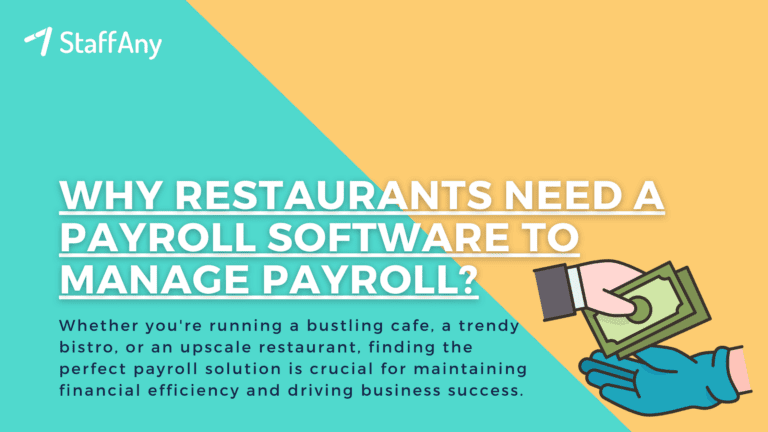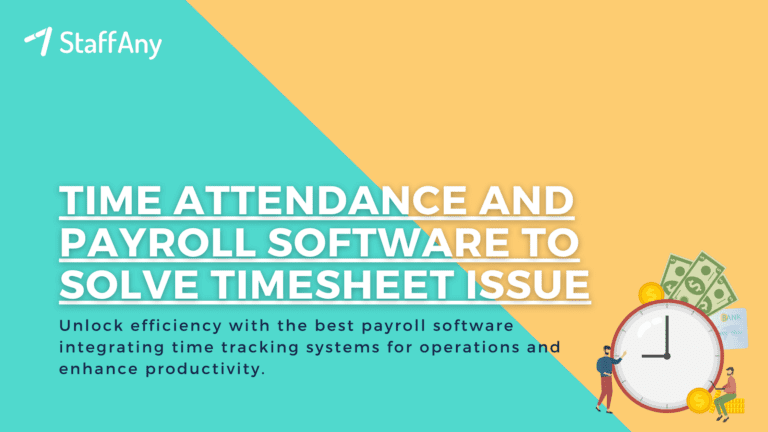As you may already know, an effective employee retention strategy is crucial for retaining top talent. Implementing programs such as competitive compensation, flexible work arrangements, and fostering a positive work environment can help keep employees engaged and satisfied, reducing the likelihood of them seeking employment elsewhere.
Do you need some ideas for employee retention programs that you can apply to your business? We round them up for you in the article below!
What is an Employee Retention Program?

To implement effective strategies, first, you must understand the definition of an employee retention program.
An Employee Retention Program is a set of initiatives designed to encourage employees to remain with a company for an extended period. These programs aim to reduce turnover, which can be costly and detrimental to productivity, morale, and customer service. By creating a positive work environment that values and supports employees, retention programs help to increase employee satisfaction and engagement, leading to better performance and the ability to attract and retain top talent.
Overall, effective employee retention programs are essential for maintaining a productive and successful workforce.
Effective Employee Retention Programs

Now that we have a clearer and more definitive understanding of an employee retention program, here are some employee retention strategies that you can look into:
1. Competitive Compensation Package
Employees expect good employee compensation if they want to work with you. It is important to consider more than just salary when designing a compensation plan for your employees. A comprehensive package that includes benefits such as health insurance, allowances, and paid time off will demonstrate that you care about their needs. Offering a competitive compensation package can also attract top talent and increase employee retention.
2. Career Development Opportunities
Employees need to feel that they have the chance to grow and advance within the company, both in terms of skill development and promotion. Providing opportunities for career development gives employees a sense of purpose and growth within the organisation, making them more likely to stay with the company in the long term.
Read more: Understanding Manpower Planning and Its Importance in F&B
3. Encourage and Promote a Work-Life Balance
Allowing employees to telecommute, have flexible hours, or participate in job sharing can help reduce stress and increase job satisfaction. This type of flexibility allows employees to better manage their personal responsibilities and can be especially valuable to employees with families or other caregiving responsibilities. Offering flexible work arrangements shows that you’re addressing their work-life balance needs, and can also help to improve overall employee well-being.
4. Recognition and Incentives Program
Showing appreciation for an employee’s hard work and contributions to the company can help make them feel valued and engaged. Recognising employees through rewards, bonuses, or other incentives can also increase motivation and productivity. Implementing a recognition program that is tailored to the specific needs and values of your organisation can improve employee morale, and support a positive and productive work environment.
Read more: How to Prepare Shift Roster Effectively with No Hassle in the F&B Industry
5. Building Strong Company Culture and Values
Never underestimate the power of a solid company culture, as it plays a major role in employee engagement, motivation, and satisfaction. When employees feel that they are part of something bigger and that their values align with those of the company, they are more likely to be committed to the organisation’s mission and goals. By creating a strong company culture and ensuring that it aligns with employee values, businesses can foster a positive work environment that supports employee engagement and satisfaction, leading to increased productivity, improved morale, and better overall performance.
6. Clear Communication and Transparency
A simple yet powerful initiative, when you provide employees with clear and transparent communication, they will feel informed and empowered to perform their work effectively. Transparency is also important for building trust and creating a sense of inclusion among employees, making them feel valued and invested in the company’s decision-making process.
7. Employee Engagement and Empowerment
To improve employee engagement, it is important to empower employees to take ownership of their roles and feel responsible for their work. This can be achieved by encouraging employee input and feedback, providing opportunities for professional development, and holding regular team-building activities or gatherings.
8. Create an Emphasis on Teamwork
In certain work settings, an essential aspect of retaining employees involves placing significant importance on fostering a strong sense of teamwork. This entails providing opportunities for collaboration, including cross-departmental collaboration, as it serves to promote teamwork and enhance overall employee engagement.
Cultivating a culture of robust teamwork not only facilitates stronger connections among colleagues, contributing to a positive work environment, but it also leads to improved overall performance. Effective teamwork enables managers and employees to leverage their strengths and weaknesses within departments, leading to a more strategic distribution of workload.
9. Health and Wellness Programs
Another key element in employee retention is by promoting your employees’ overall well-being. To maximise the benefits of such programs, it is important to provide resources and support that focuses on both physical and mental health. Offerings such as fitness classes and stress management workshops can help employees maintain good physical and mental health, which can lead to increased employee job satisfaction satisfaction.
10. Opportunities for Input and Feedback
Giving employees a voice can lead to increased ownership and investment in the company’s goals and objectives, and make them feel valued in the company’s decision-making process. Providing opportunities for input and feedback can also help identify and address any issues or concerns employees may have, which can support a positive work environment and improved employee retention.
Read more: HR Management Softwares, Privilege or Necessity
11. Fair and Transparent Performance Evaluations
By providing clear expectations and regular feedback on employee performance, employees can better understand how their work contributes to the organization’s goals and objectives. Additionally, conducting fair and transparent evaluations can help ensure that employees are rewarded for their contributions and that any performance issues are addressed in a timely and constructive manner.
12. Reduce Employee Burnout
According to a 2020 report from Gallup titled “Employee Burnout: Causes and Cures,” findings revealed that 76% of employees occasionally experience burnout, with 28% indicating they frequently or consistently feel burned out. While it is commonly assumed that burnout is primarily caused by excessive work and can be resolved by taking time off or reducing work hours, Gallup’s study suggests that burnout is more influenced by how employees perceive and handle their workload rather than the sheer number of hours worked.
Interestingly, employees who feel more engaged in their work, receive proper recognition and rewards, and are provided with greater job flexibility through options such as reduced hours, remote work, or flexible scheduling tend to report higher levels of well-being.
13. Manage for Retention
According to a 2018 study on the Employee Experience conducted by Udemy, approximately half of employees leave their jobs due to poor management. Conversely, an effective manager takes on the role of a “coach” rather than a “boss.” The critical distinction lies in the perception that a boss is often viewed as an unyielding figure, closely monitoring every aspect of employees’ work and making unreasonable demands.
In contrast, a coach recognizes that employees are valuable team members. A competent manager/coach endeavors to provide guidance, support, and objectives while still granting employees a significant level of autonomy. In doing so, they foster an environment where employees can thrive and grow.
The main point about employee retention programs is you care about your staff by conducting those initiatives above. By giving competitive compensation, you care about their needs. By making a health and wellness program, you care about their well-being too.
Overall, an effective employee retention program is crucial for maintaining a productive and successful workforce. There are various strategies that can be implemented to retain employees, and a combination of these strategies can create a positive work environment that supports employee satisfaction and motivation, leading to improved retention.
One way to empower your employees is to allow them to manage their own paid leave availability via StaffAny. With our Leave Management System your employees can easily apply for their leave within the app, allowing you to gain better transparency, clarity, and better visibility on your staff’s leave information while reducing manual calculations of leaves. This also effectively reduces poor communication within the team. Want to see how this automation looks like on StaffAny? Get started on StaffAny for free!











